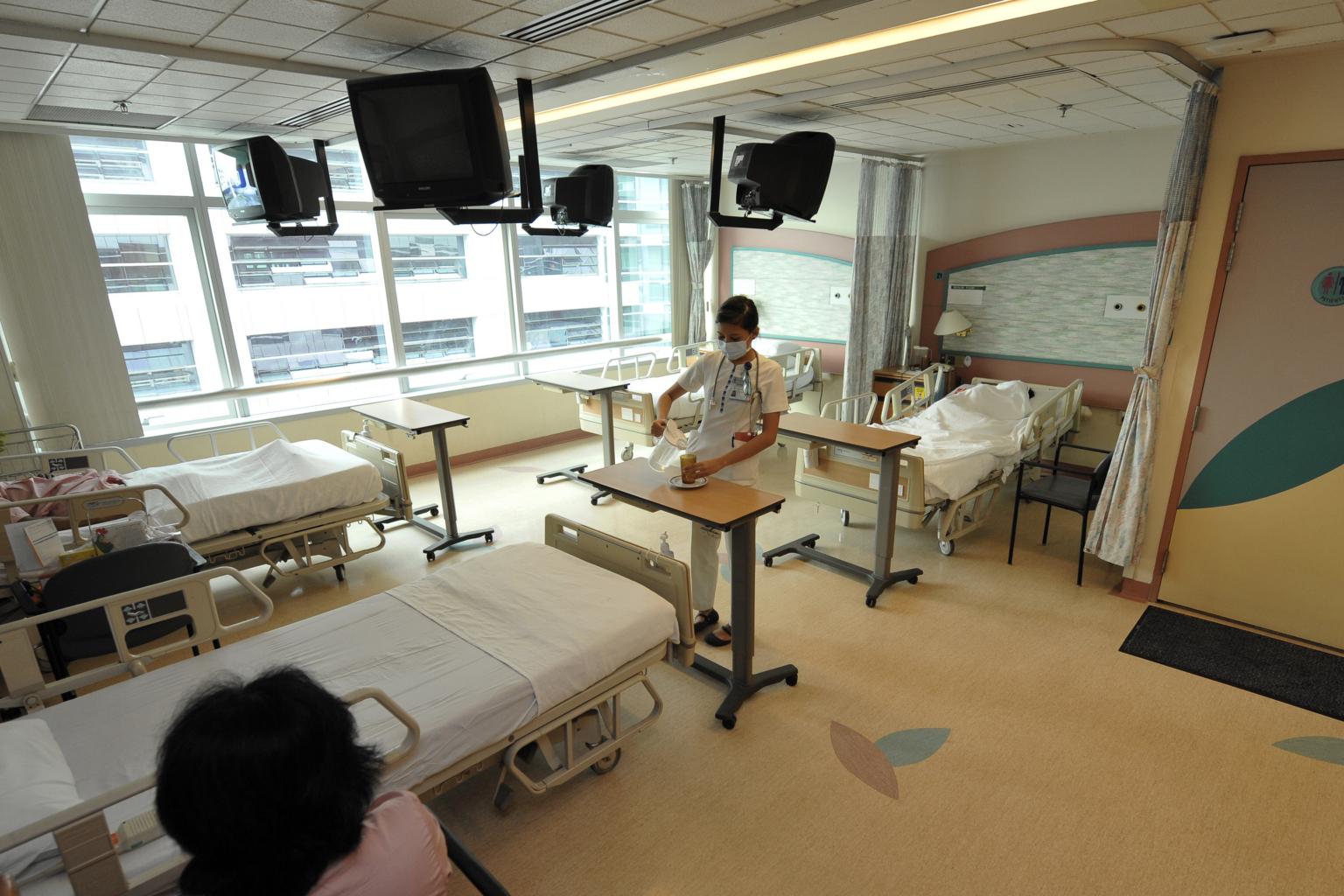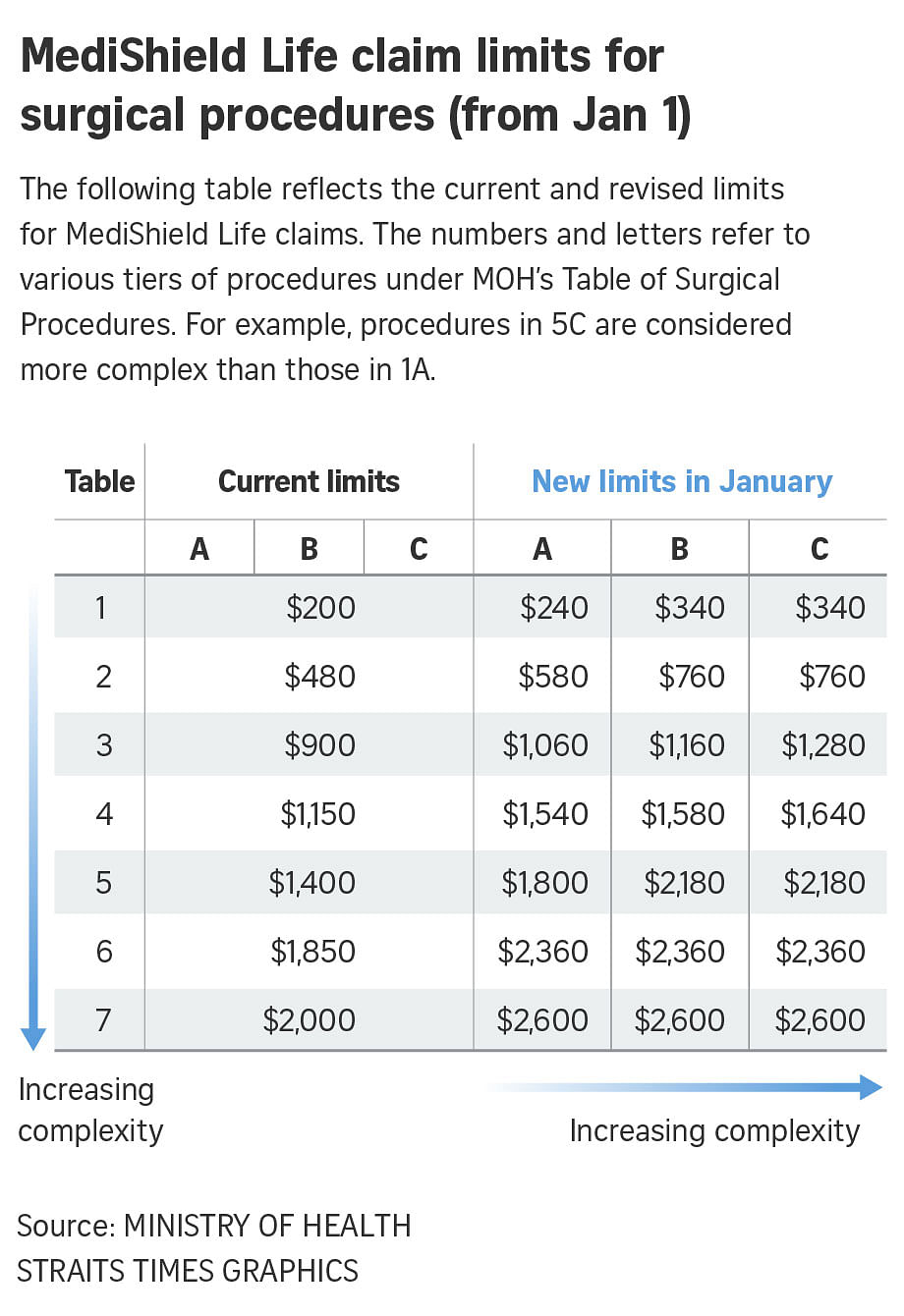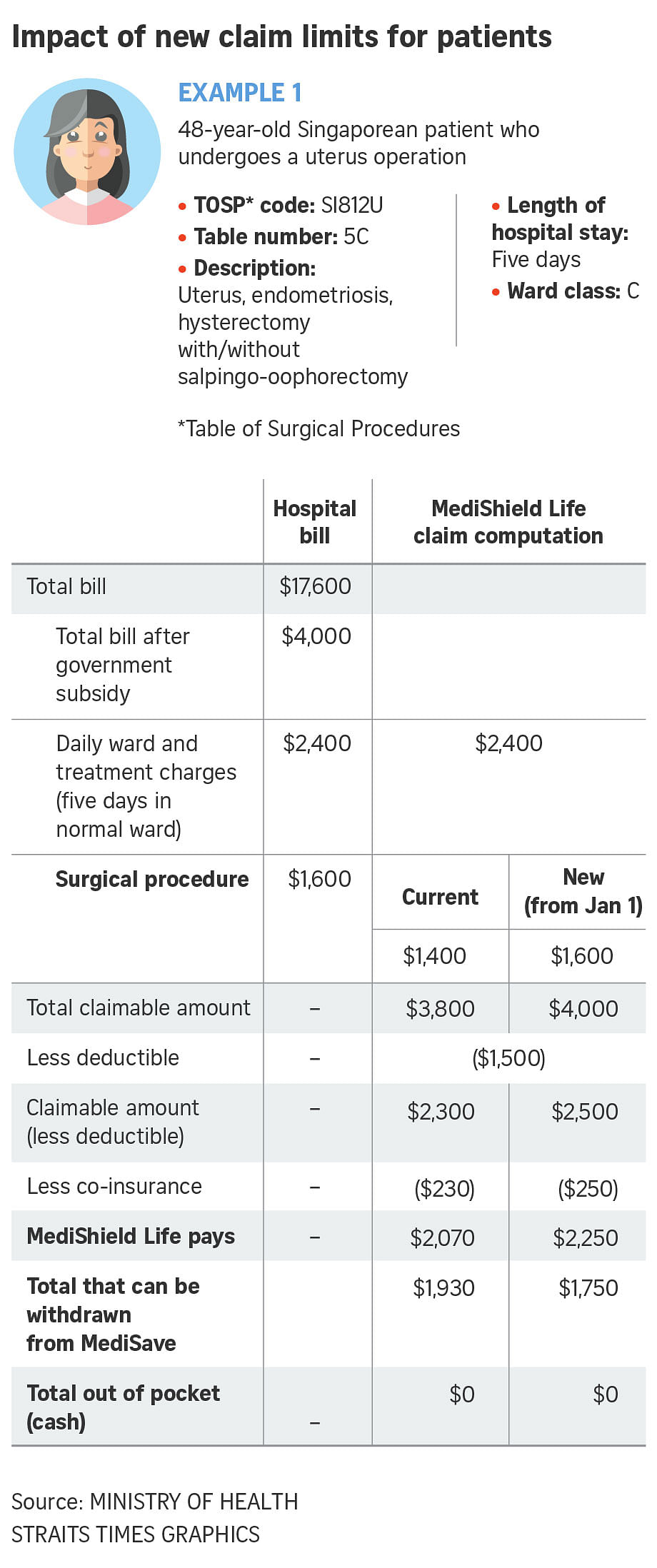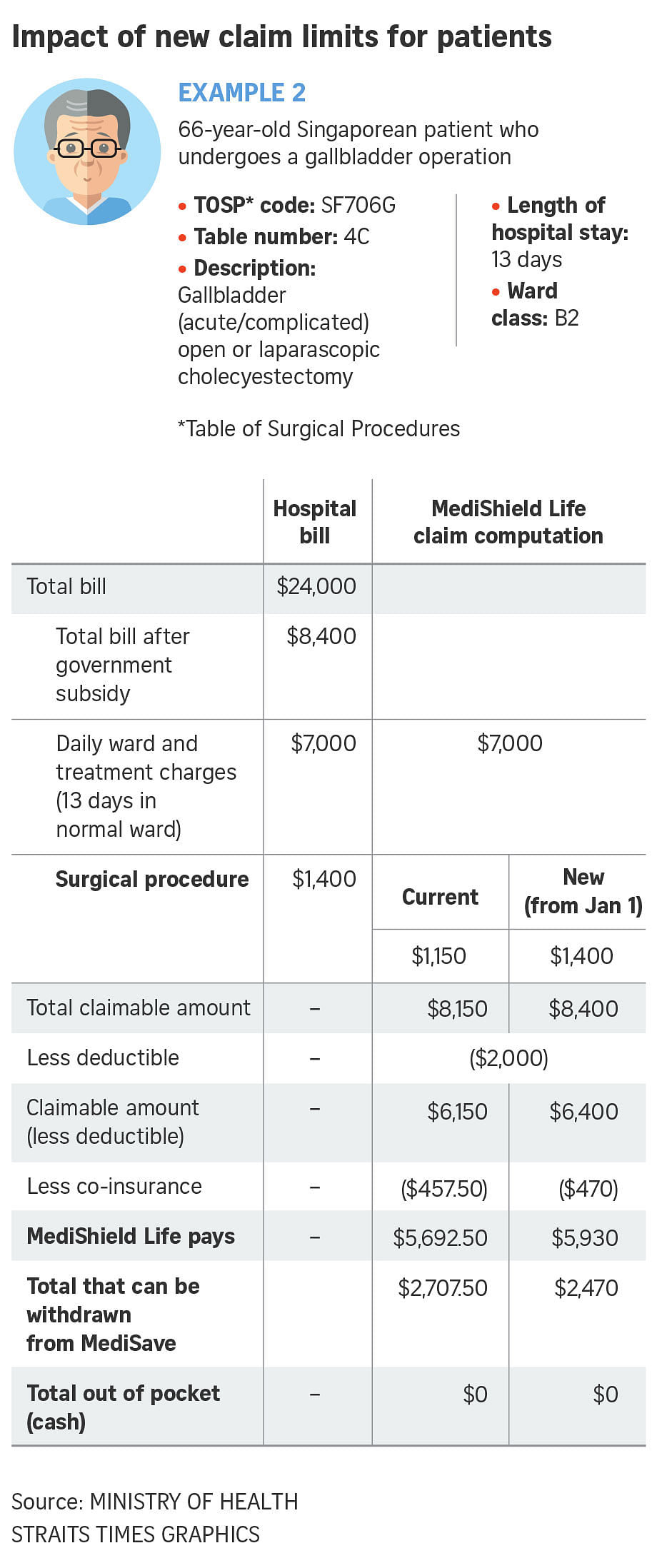Surgery patients may get higher payouts under raised MediShield Life claim limits; no changes to premiums
Sign up now: Get ST's newsletters delivered to your inbox

MediShield Life is a basic health insurance plan that helps to pay for large hospital bills and selected costly outpatient treatments.
PHOTO: ST FILE
SINGAPORE - Patients who need surgery could, from next year, claim more from their compulsory health insurance, the Ministry of Health announced on Friday (Dec 27).
This comes as a result of raised MediShield Life claim limits, a move which is expected to benefit around 90,000 patients a year.
MediShield Life is a basic health insurance plan that helps to pay for large hospital bills and selected costly outpatient treatments, such as dialysis and chemotherapy.
All Singaporeans and permanent residents are covered by MediShield Life, which is administered by the Central Provident Fund Board.
Patients undergoing surgical procedures listed in the ministry's Table of Surgical Procedures can claim from MediShield Life and tap their Medisave to pay for their surgical bills subject to claim limits.
There are currently seven tiers of MediShield Life claim limits to cater to surgical procedures of different complexities.
This number will triple to 21 from next year, allowing for more differentiation between procedures of varying complexities.
Under the new set of limits, which will take effect for patients admitted for surgery from Jan 1 next year, patients may receive higher payouts for their procedures.
For instance, Patient A who undergoes a complex uterus operation might currently be able to claim only up to $1,400 - the same amount as Patient B who undergoes a simpler uterus operation.
Under the revised limits, Patient A can claim up to $2,180, over $700 more than before.
Patient B can claim up to $1,800 for the simpler procedure, less than Patient A but still $400 more than under the previous limits.
MediShield Life has been in the spotlight since The Straits Times reported on Dec 30 last year that the insurance plan had covered only $4.50 of a patient's $4,477 post-subsidy bill.

In January, the Government Parliamentary Committee (GPC) for Health questioned why certain patients were not getting full MediShield Life cover.
MOH said in a statement on Friday that the introduction of the new tiers will provide better coverage for more complex surgical procedures, which tend to be costlier.
However, there will be no adjustments to premiums at this point, as the Government had committed to keeping premiums constant for five years when MediShield Life was launched in November 2015.
The ministry added that claim limits were adjusted to keep pace with increased healthcare costs since their last revision in 2015.
Senior Minister of State for Health Edwin Tong said in Parliament in January this year that MOH would review MediShield Life claim limits more regularly, about once every three years or so.
The surgical claim limit revisions were recommended by the MediShield Life Council (MLC) as part of its review exercise, which started in 2018 and is expected to be completed by the end of next year.
Chairman of the MLC's Benefit Parameters Sub-committee Hauw Soo Hoon said: "Claim limits are one of the features, alongside co-payments and deductibles, that help MediShield Life strike a balance between keeping premiums affordable and ensuring adequate coverage."
She said that the new claim limits would help provide better protection against large hospitalisation bills arising from complex surgical procedures.
Mr Tong said on Friday that the new claim limits would be implemented first so that patients can benefit earlier from the changes.
He added: "We will continue our efforts to keep healthcare costs sustainable and affordable for all Singaporeans."
Patients do not need to take any steps to benefit from the new limits, which will be automatically applied to their MediShield Life claims.
Dr Lily Neo, deputy chairman of the GPC for Health, said: "It's useful to have such revisions, especially now that there are more advanced medical treatments that require newer technology.
"Not all conditions are the same or require the same standardised procedures, so if we can have more tiers, that will better accommodate various conditions that require different types of treatment, or better technology."
In its statement, MOH emphasised that the Government provides significant subsidies of up to 80 per cent to keep healthcare costs low, and that there are various forms of financial assistance available for those in need.
It added: "No Singaporean will be denied appropriate healthcare due to an inability to pay."




